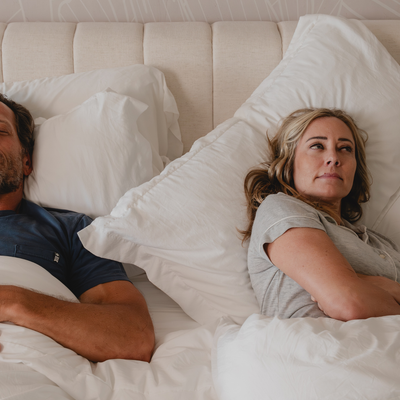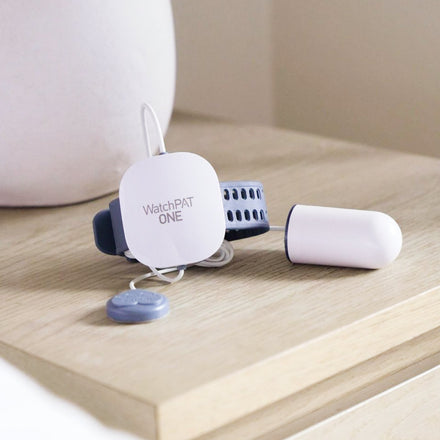Yes, the question sounds silly. And yes, SPOILER ALERT: Santa Claus isn't real.
However, ol' Saint Nick and the like are, in fact, based upon real people. Using what we know, let's take a look at common signs of OSA to do a quick diagnosis of Kris Kringle himself.
Curious if you have sleep apnea? Take our free online-assessment here.
Age
One of the easiest ways to determine a likelihood of sleep apnea is age. Typically, those suffering from sleep apnea range from 30-55+. However, OSA does not discriminate.
One of the oldest predecessor's of Santa Claus is Saint Nicholas aka Saint Nick. Saint Nicholas was a Greek Christian bishop during the 4th-century in modern-day Turkey and was remembered as a gift giver, especially to children. Over 50? Check.
Father Christmas dates back to 16th-century England.
Even the most modern renditions like that we most commonly know were created in the 1930's and 40's.
In short, if Santa is still delivering, he must be in the right age range!
Male
Sleep apnea does have a stigma toward men, and for good reason. In our own studies, about 7 out of 10 home sleep tests are purchased by men. However, women are not exempt.
While men are more likely to develop both OSA and central sleep apnea, women increase their risk if they are overweight or are post-menopause.
So far, Santa falls into 2 categories of high-risk individuals. The third shouldn't come as a surprise either.
Weight
In an 1823 poem entitled "A Visit from St. Nicholas", we read Santa has "a little round belly that shook when he laugh'd, like a bowl full of jelly".
Excess weight and obesity significantly increases the risk and severity of sleep apnea. In fact, weight gain and obesity are indicators of sleep apnea in adults. While Santa is one of our culture's most beloved icons, his fictitious stature does indicate that he's likely to experience sleep apnea events.
What else?
These factors alone would be enough for us to guess that Mr. Claus suffers from some level of sleep apnea. We don't know if Mrs. Claus has ever witnessed him gasping or choking during the night or if often feels foggy during the day. But with the late nights and cookie intake, we'd guess he's pretty tired!
What does this mean for you?
Find out! Take our free, online-assessment to see if you, too, could be suffering from this very common sleep disorder. Testing is easy and only takes one night. And with Lofta, treatment is easier than ever! You could even put this on your Christmas list.













































